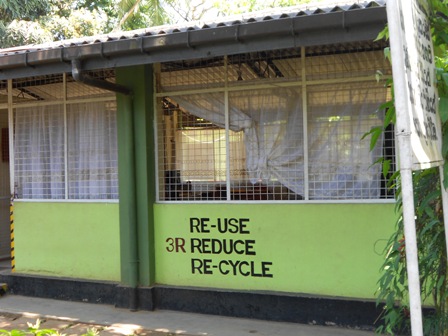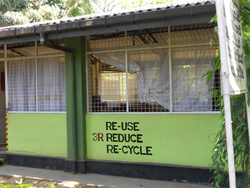European – South Asian exchange towards zero waste cities

Witnessing directly how other cities overcame similar challenges is one of the most efficient ways to learn about best practices and solutions to common problems – this is the idea behind the visit to Europe of the Asian project partners and cities of “SUNYA-Towards Zero Waste in South Asia”.
As part of the European Union funded project, on 22-28 September, the involved cities will travel, together with Municipal Association of Nepal (MuAN) and ICLEI South Asia representatives, to the cities of Vienna and Brussels, where the European partners ARGE and the Association of Flemish Municipalities (VVSG) are respectively based. The study tour will give to the Asian participants an opportunity to observe the overall waste management system in these cities, as well as the different applications of the 3R principle for Solid Waste Management (SWM). The study tour will be followed by a discussion on the possibilities to emulate, with suitable modifications to suit the local context, these practices in the Asian cities.
The European visit comes after a very intense period of planning of pilot projects in the project cities.
In Coimbatore (India), the pilot project will introduce the 3R principle in ward number 23, where the land is used for residential, commercial, governmental, religious, institutional and industrial purposes. The pilot intervention will include extensive awareness generation through Information, Education and Communication (IEC) activities, the formation of a participatory ward committee, door to door collection of segregated waste from residential, commercial and institutional units (including street sweeping and drain cleansing), and the setting up of waste collection centers for recyclables and a biogas plant for organic waste in the area. The pilot project identified in Shimla (India) will introduce source segregation of waste and composting for one area in the city, located in the valley, where the topography makes the collection and disposal into the mainstream system very difficult.
The Banani Food Market, in Dhaka (Bangladesh) will be the pilot area where the 3R principle and composting practices will be introduced. This will be done through separate waste collection in the market area; setting up of rooftop composting on the building of the market; and awareness-raising on waste management amongst the market users.
Hetauda Municipality (Nepal) will work in ward number 2 on waste segregation through a two channel system of green and blue channels, implementing at source segregation into biodegradable and non-biodegradable waste at the household level and at secondary transfer stations. In Tansen (Nepal), waste segregation practices and citizens awareness raising activities on littering, waste segregation and composting will be introduced in the areas of Milijuli, Makhan and Ason Tole.
The pilot intervention of Matale (Sri Lanka) will introduce the 3R principle in all the local schools and institutions. This ambitious goal is aiming at reducing the amount of waste going to the city landfill, which is already almost completely full.
The CST engineering college of Phuentsholing (Bhutan) will carry out several environmentally friendly activities, including the purchasing of color coded dustbins, awareness-raising of campus staff and students, the preparation of proper data about waste/generation collection in the college, the organization of awareness campaigns in other schools, as well as paper recycling, segregated waste collection and composting.
More information: http://www.sunyaproject.org/
